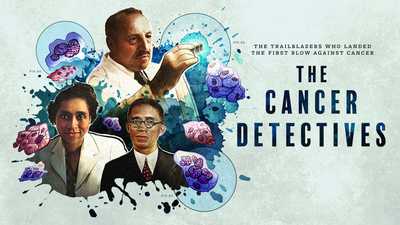Alexander Hamilton (1755-1804), a Profile

He may have been born, in John Adams' memorable phrase, the mere "bastard brat of a Scottish peddler." But Alexander Hamilton rose to become a Revolutionary War hero, key advocate for the Constitution, and rescuer of the nascent American government from financial ruin, all before dying in a duel just six months shy of his 50th birthday.
Self-Taught and Ambitious
Born illegitimate in the West Indies, Hamilton had nothing handed to him in his early years. His mother Rachel Faucett, of French descent, had been imprisoned previously for adultery. His father, James Hamilton, a Scottish trader, deserted the family on the island of St. Croix when Alexander was ten. His mother would succumb to yellow fever just three years later, leaving the boy essentially alone and increasingly self-reliant. Out of her modest estate Alexander inherited only books; this library, and especially its stories of the great statesmen of Greece and Rome, as told by the ancient Roman authors Livy and Plutarch, became his inspiration. In these years, Alexander's dreams far outstripped his lowly social class; as he confided to a friend, "My ambition is so prevalent that I disdain the groveling conditions of a clerk to which my fortune condemns me. I would willingly risk my life, though not my character, to exalt my station." The brilliance and ability he showed as a clerk in an American trading company led his boss and a local clergyman to help sponsor him, sending the prodigy to America for an education in 1773.
Hamilton in the Revolution
When war with England broke out two years later, Hamilton joined a New York artillery company, and General George Washington soon noticed the young man's talents, making him an aide-de-camp in March 1777. By 1781 Hamilton felt the frustration of nearly four years of working at what was essentially a desk job and making repeated appeals for a field command. He yearned to win glory on the battlefield. He took a minor incident and used it as pretext to quit Washington's staff, eventually getting a field commission and leading a dramatic charge against British fortifications in the decisive 1781 battle of Yorktown. After the war ended, he studied law, won membership in the New York bar and made a home in New York City with a wife, Elizabeth, and a growing brood of children. Hamilton drew attention for his willingness to take on an unpopular but, in his view, principled causes, such as the plight of former Loyalists whom he believed had been denied due process. During the post-war period, he also served as a delegate to the Confederation Congress and helped found the Bank of New York.
Federalist and Treasury Secretary
Hamilton believed in the need for a powerful central government and was a key advocate for replacing the weak Articles of Confederation with a stronger government. Although his participation in the 1787 Constitutional Convention was minor, Hamilton became a key player in the efforts to ratify it, penning the majority of a series of essays called The Federalists (later known as The Federalist Papers) that made the case for the Constitution in clear terms. Hamilton was also instrumental in New York's successful ratification of the document. When Washington became the nation's first president in 1789, Hamilton joined the Cabinet as secretary of the treasury. His years there were extraordinarily productive, and with Washington's backing, Hamilton secured ambitious legislation creating a national bank and dealing with government debts. A nationalist who lacked the fierce state loyalties of many other Founding Fathers, Hamilton willingly traded away New York's chance to house the nation's permanent capital in order to secure backing for his economic program in 1790's famous "dinner table bargain." When he left the Cabinet in 1795, Hamilton had put America on a firm financial footing.
Scandal and Intrigue
Hamilton was a better interpreter of markets than of men; his post-government years were marred by scandal and intrigue. His frank 1797 admission of an adulterous affair, made in the course of defending his financial integrity, exposed him to public ridicule, and his willingness to go to war with France earned the enmity of President John Adams, who was doing everything he could to prevent the conflict. Hamilton then turned against his fellow Federalists and divided the party on the eve of the pivotal 1800 elections, which were won by the Republicans. Forced therefore to choose between two political opponents for the presidency, Hamilton sided with Thomas Jefferson and worked to ensure Jefferson's victory over Aaron Burr, whom Hamilton considered unprincipled. When Hamilton again plotted to deprive Burr of an electoral victory in 1804, during New York's gubernatorial election, Burr finally took notice. When Burr read in a newspaper that Hamilton had expressed a "despicable opinion" of him, the vice president demanded a further explanation which Hamilton did not provide. Hamilton wished to respond to a specific insult — which Burr could not provide. The conflict ended in a duel on July 11; Hamilton received a mortal wound there and died the next day.






